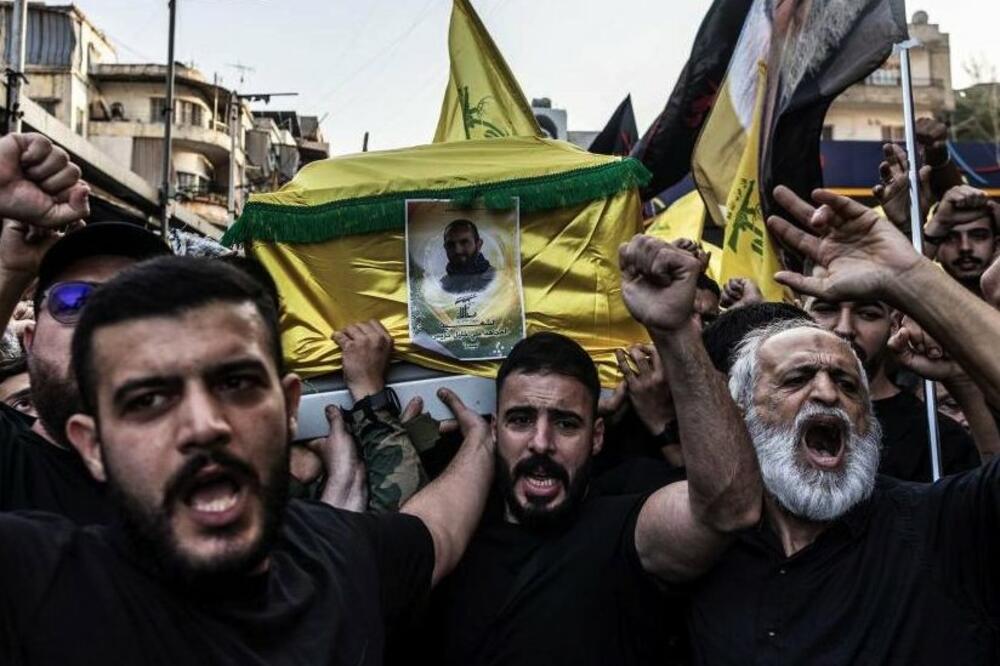Tension in the Middle East is on the rise.
Iran launched a drone and missile attack on Israel on Saturday night, according to local state media that attributed the information to the Iranian Revolutionary Guard Corps, a branch of Iran's armed forces.
Israeli Prime Minister Benjamin Netanyahu convened a war cabinet and announced that the country's "defense systems" had been activated to repel attacks.
Iran has vowed retaliation after two of its top military commanders killed on April 1 in an attack on his consulate in Damascus, and for which he blamed Israel.
Anticipation of a possible military response from Iran was on the rise after US President Joseph Biden said on Friday that he expected an attack from Tehran "sooner rather than later".
This is the latest episode in an old feud.
- Why Iran attacked Israel
- "We will respond when the time is right," Israel's message to Iran, and what America and its allies say
- What is the mood in Iran after the attack on Israel
Israel and Iran have engaged in a bloody rivalry for years, the intensity of which fluctuates depending on geopolitical factors.
It has become one of the main sources of instability in the Middle East.
For Tehran, Israel is the "little Satan", an ally of the United States of America in the Middle East, which it calls the "great Satan".
Israel accuses Iran of funding "terrorist" groups and carrying out attacks against its interests motivated by the Ayatollah's anti-Semitism.
The rivalry of the "blood enemies" left behind a huge death toll, often as a result of covert actions for which no government claimed responsibility.
The war in Gaza only made it worse.
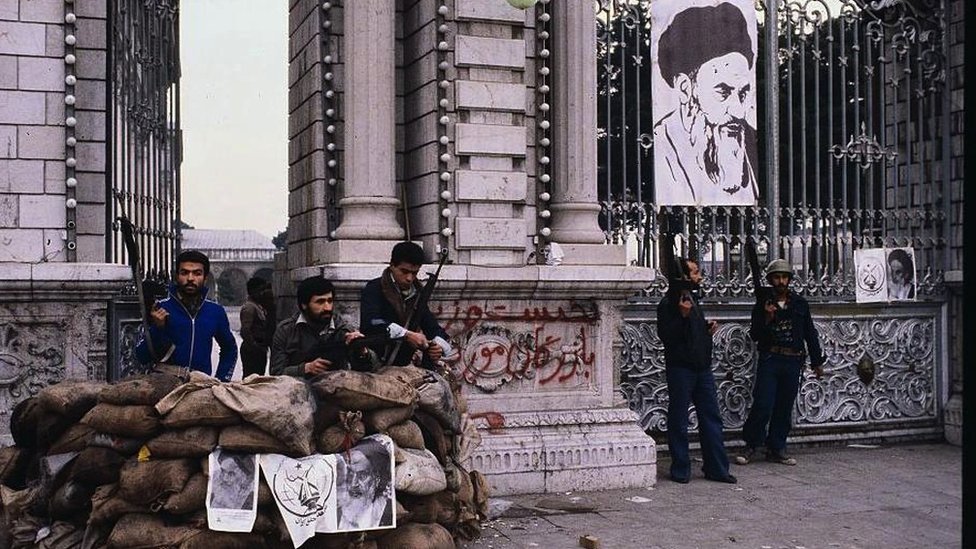
How did the rivalry between Israel and Iran begin?
Relations between Israel and Iran were quite cordial until 1979, when the Islamic Ayatollah Revolution seized power in Tehran.
Moreover, although it opposed the partition plan for Palestine that led to the creation of the state of Israel in 1948, Iran was the second Islamic country to recognize it, after Egypt.
At the time, Iran was a monarchy ruled by the Shahs of the Pahlavi dynasty and one of the main allies of the United States of America in the Middle East.
For this reason, the founder of Israel and its first prime minister, David Ben-Gurion, wanted and succeeded in gaining the friendship of Iran as a way of countering the non-recognition of the new Jewish state among its Arab neighbors.
But in 1979, Ruhollah Khomeini's revolution overthrew the shah and imposed an Islamic republic that presented itself as the defender of the oppressed.
One of the main features of the new government's identity was the rejection of the "imperialism" of the United States and its ally Israel.
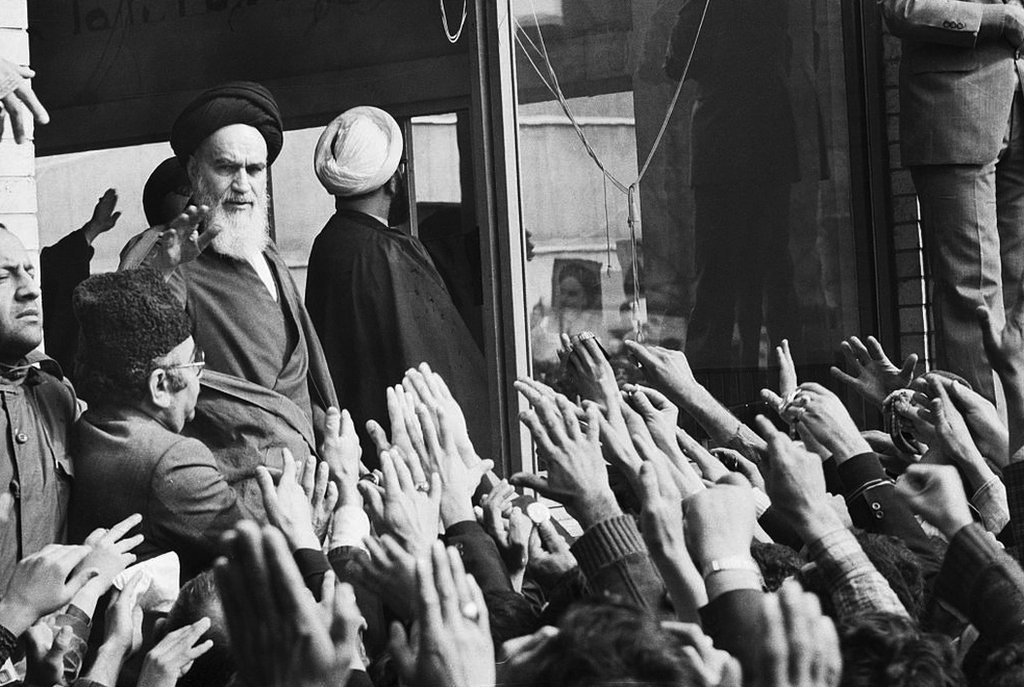
The new Ayatollah regime severed all relations with Israel, stopped recognizing the validity of its citizens' passports and seized the Israeli embassy in Tehran to hand it over to the Palestine Liberation Organization (PLO), then the spearhead of the Palestinian state's struggle against the Israeli government.
Ali Vaez, director of the Iran Program at the International Crisis Group, an independent non-governmental organization that aims to prevent and resolve world conflicts, told the BBC that "hostility towards Israel has been a pillar of the new Iranian regime because many of its leaders have trained and participated in guerrilla warfare." fighting alongside the Palestinians in countries such as Lebanon, and had great sympathy for them".
But, in addition, according to Vaez, "the new Iran wanted to present itself as a pan-Islamic power and revived the Palestinian struggle against Israel, which the Arab Muslim countries had given up on."
In this way, Khomeini began to appropriate the Palestinian struggle for himself and mass pro-Palestinian demonstrations with the official support of the authorities became common in Tehran.
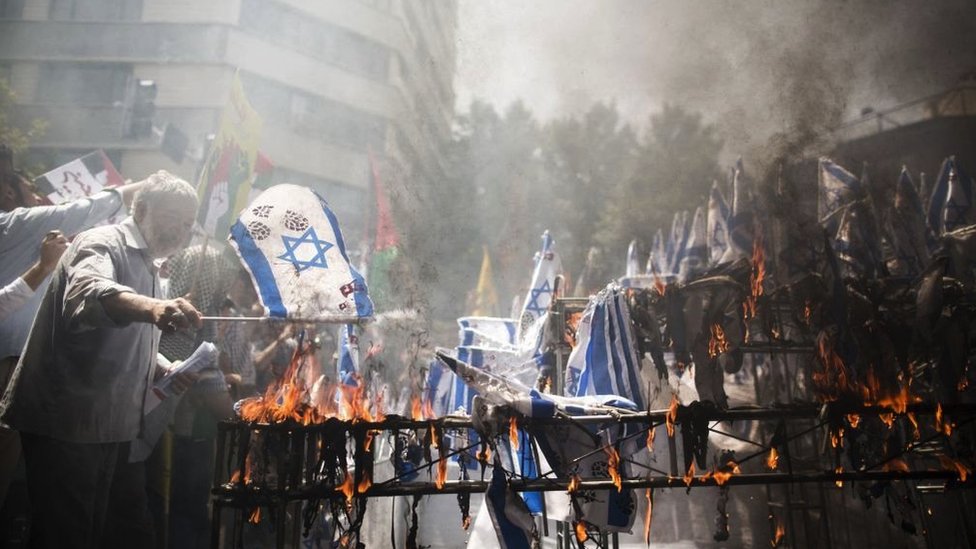
Vaez explains that "in Israel, hostility towards Iran began much later, only in the nineties, because before that Saddam Hussein's Iraq was perceived as a greater regional threat."
So much so that the Israeli government was one of the intermediaries that facilitated the secret program called "Iran-contra", through which the United States diverted weapons to Iran to be used in the war it waged against its neighbor Iraq between 1980 and 1988. . years.
But, over time, Israel began to perceive Iran as one of the biggest threats to its existence, and the rivalry between the two countries turned from words to actions.
- What is Hezbollah and why is it in the Washington agreement
- The Israel-Hamas War: Why Everyone's Talking About Iran
- Why is Iran embroiled in so many conflicts
The "shadow war" between Israel and Iran
Vaez points out that, faced with Saudi Arabia, another major regional power, and fully aware that Iran is Persian and Shiite in the mostly Sunni and Arab Islamic world, "the Iranian regime understood that it was isolated and began to build a strategy aimed at preventing the enemy from one day they attack him in his own territory".
And therefore, the network of organizations on the side of Tehran multiplied and began to carry out military actions and in accordance with its interests.
Among them, Hezbollah from Lebanon, which the United States of America and the European Union have declared a terrorist organization, is the most prominent.
Today, the so-called Iranian "axis of resistance" extends to Lebanon, Syria, Iraq and Yemen.
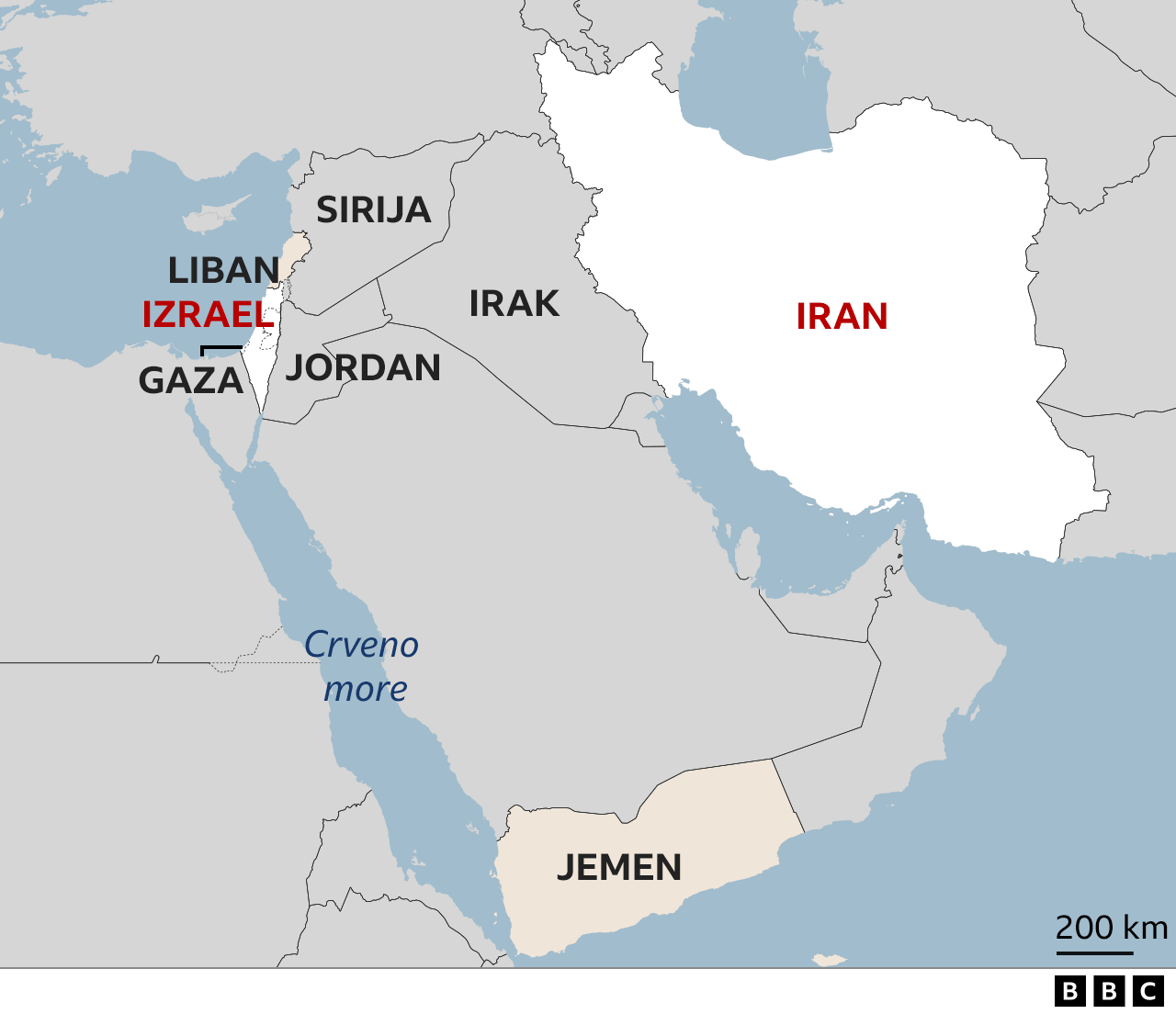
Israel did not sit idly by and exchanged attacks and other hostile actions with Iran and its allies, often in third countries, where it funded and supported armed groups fighting pro-Iranian forces.
The struggle between Iran and Israel has been described as a "shadow war" because both countries attacked each other without, in many cases, acknowledging the involvement of either government.
The Islamic Jihad group, close to Iran, blew up the Israeli embassy in Buenos Aires in 1992, killing 29 people.
Shortly before that, Hezbollah leader Abbas Al Mousavi was killed in an attack widely attributed to Israeli intelligence.

As for Israel, it has always been obsessed with distraction Iran's nuclear program to prevent the Ayatollahs from ever getting their hands on atomic weapons.
Israel does not believe Iran's assurances that its program is purely for civilian purposes, and it is widely accepted that Israeli services, in cooperation with the United States, developed the computer virus Stuxnet, which caused serious damage to Iran's nuclear facilities in the first decade of 2000- quiet.
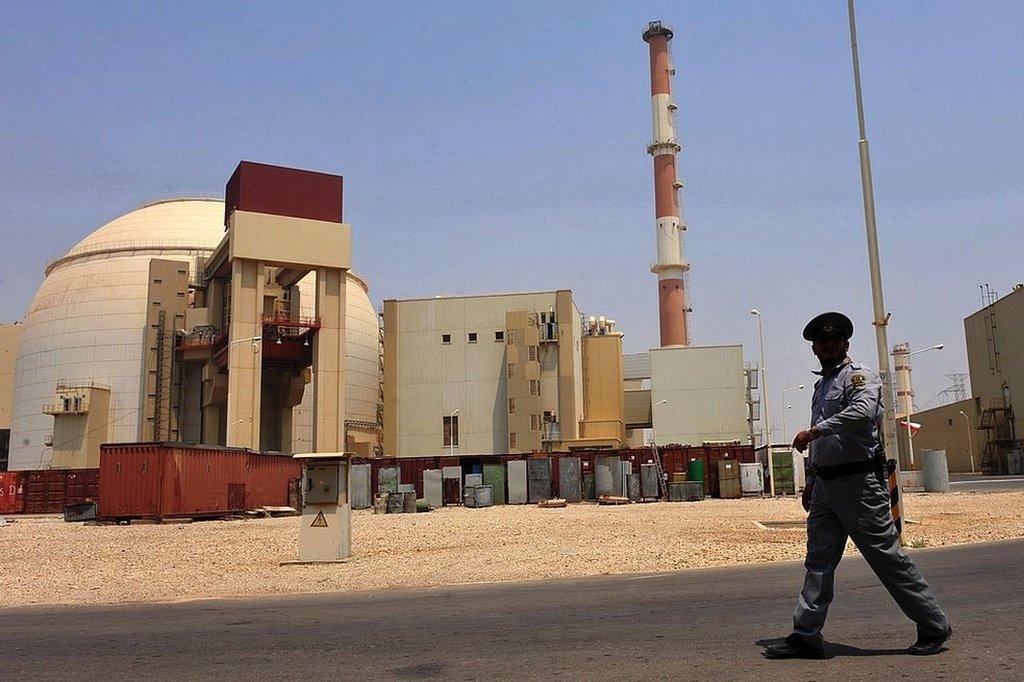
Tehran has also blamed Israeli intelligence for attacks on some of the top scientists in charge of its nuclear program.
The most prominent of these was the assassination of Mohsen Fahrizadeh, who was considered a top scientist, in 2000.
The Israeli government has never admitted involvement in the deaths of Iranian scientists.
Israel, along with its Western allies, has accused Iran of being behind drone and missile attacks on its territory in the past, as well as of carrying out several cyber attacks.
Civil war in Syria, which broke out in 2011, was another reason for the confrontation.
Western intelligence sources say Iran has been sending money, weapons and trainers to support President Bashar al-Assad's forces against rebels seeking to oust him, prompting alarm in Israel, which believes neighboring Syria is one of the main routes through which The Iranians are sending weapons and equipment to Hezbollah in Lebanon.
According to the US intelligence portal Stratfor, Israel and Iran have at various times carried out actions in Syria with the aim of deterring the latter from launching a massive attack.
"Shadow War" reached the sea in 2021.
That year, Israel blamed Iran for attacks on Israeli ships in the Gulf of Oman.
Iran, on the other hand, accused Israel of attacking its ships in the Red Sea.
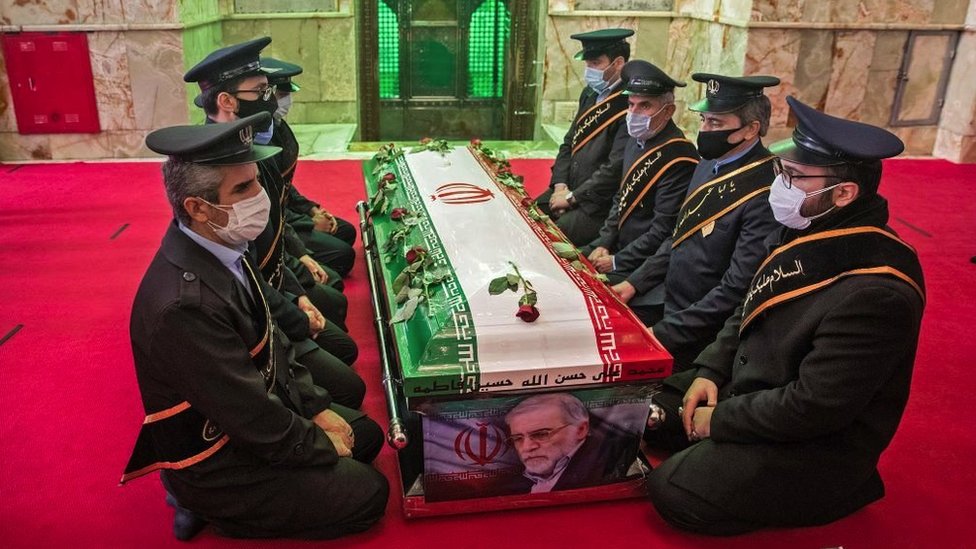
Hamas attack on Israel
Following the October 7, 2023 attack by the Palestinian paramilitary Hamas on Israel and the massive military offensive launched by the Israeli military in Gaza in response, analysts and governments around the world expressed concern that the conflict could trigger a chain reaction in the region, and open and direct conflict between the Iranians and the Israelis.
Clashes between Israeli forces and paramilitaries allegedly linked to Hezbollah on the border with Lebanon have intensified in recent months, as have clashes with Palestinian protesters in the occupied West Bank.
Until this Saturday, both Iran and Israel had avoided escalating hostilities into full-scale battles.
That changed with Tehran's firing of drones and missiles.
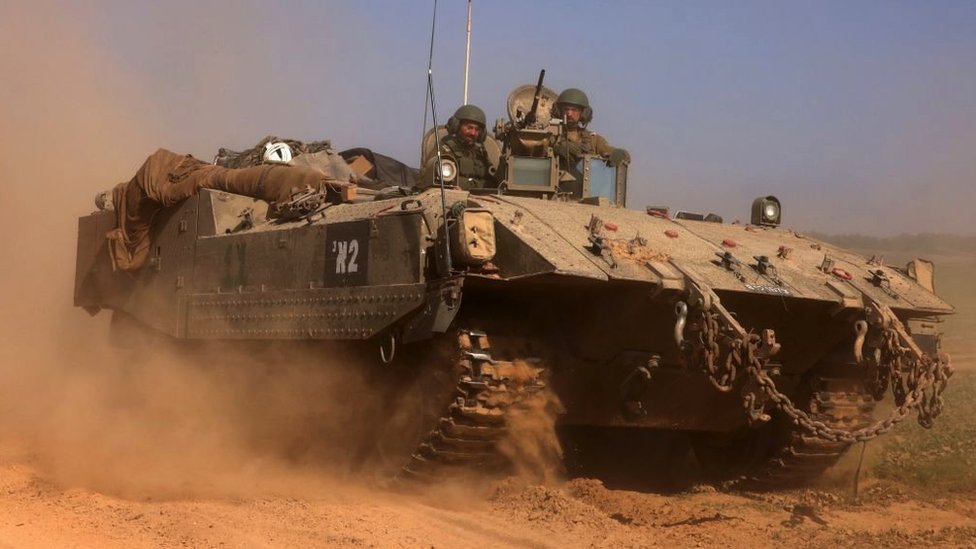
According to Vaez, “the irony is that nobody wants a mass conflict at this point.
Israel is in the sixth month of a devastating war against Hamas in Gaza, which has had a huge negative impact on its reputation on the international stage and has left it more isolated than ever."
The analyst warned that, unlike Hamas, "Iran is a state actor and, therefore, much more powerful."
But at the same time, "he has numerous economic problems, and his government is going through a crisis of international legitimacy," after months of protests in many cases led by women dissatisfied with religious restrictions.
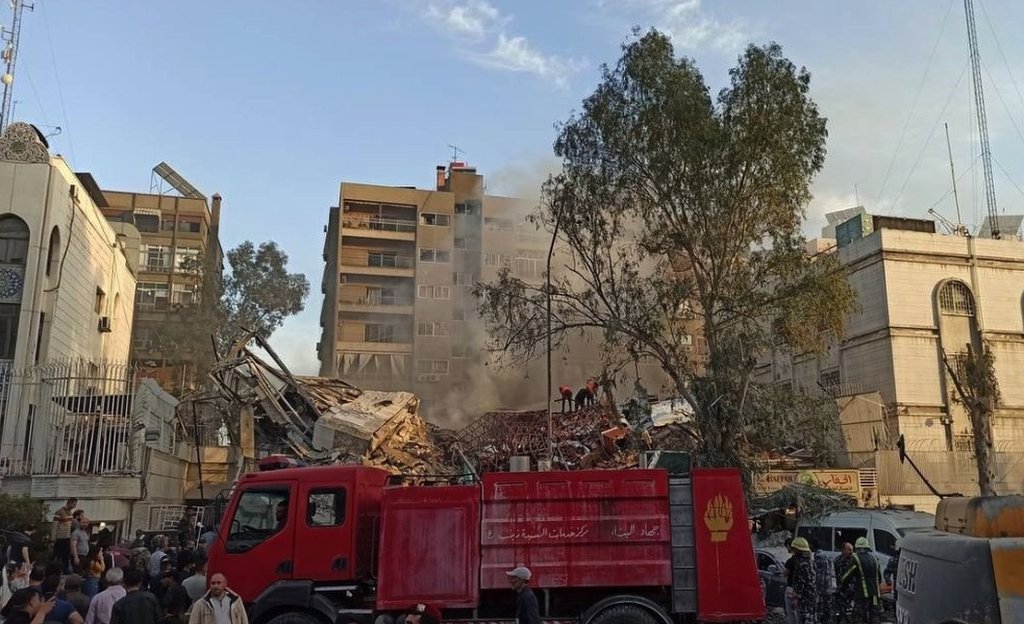
The attack on its consulate in Damascus, which killed 13 people, among them prominent Iranian senior commanders such as Revolutionary Guard General Muhammad Reza Zahedi and his deputy Hadi Hajriahmi, hurt Tehran.
His Ministry of Foreign Affairs then promised to "punish the aggressors", and his ambassador to Syria, Hussein Akbari, announced that the response would be "decisive".
In any case, Saturday's drone and missile attacks will not be the last salvo in this long-running exchange of fire.
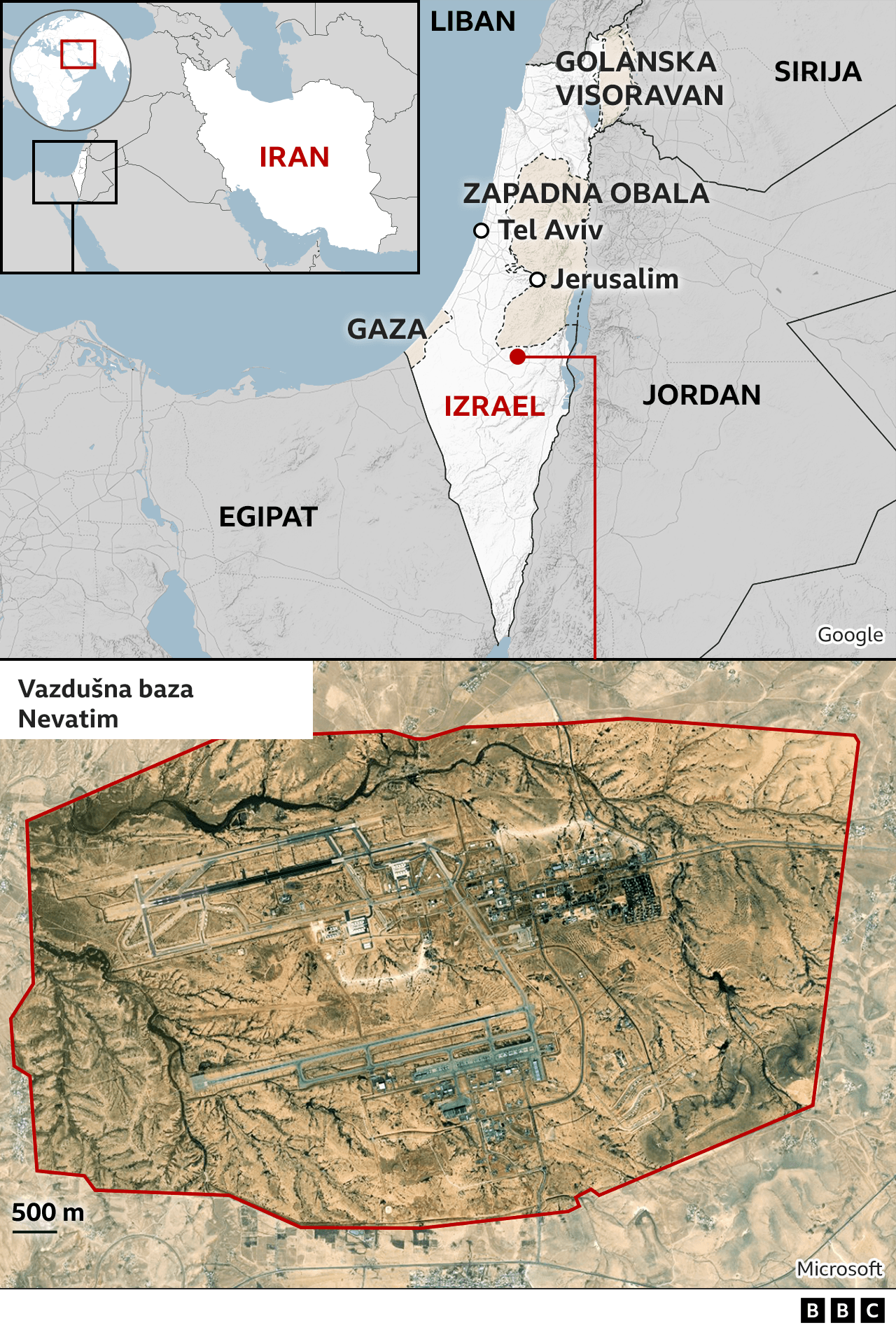
Follow us on Facebook, Twitter, Instagram, YouTube i Viber. If you have a topic proposal for us, contact us at bbcnasrpskom@bbc.co.uk
Bonus video:



